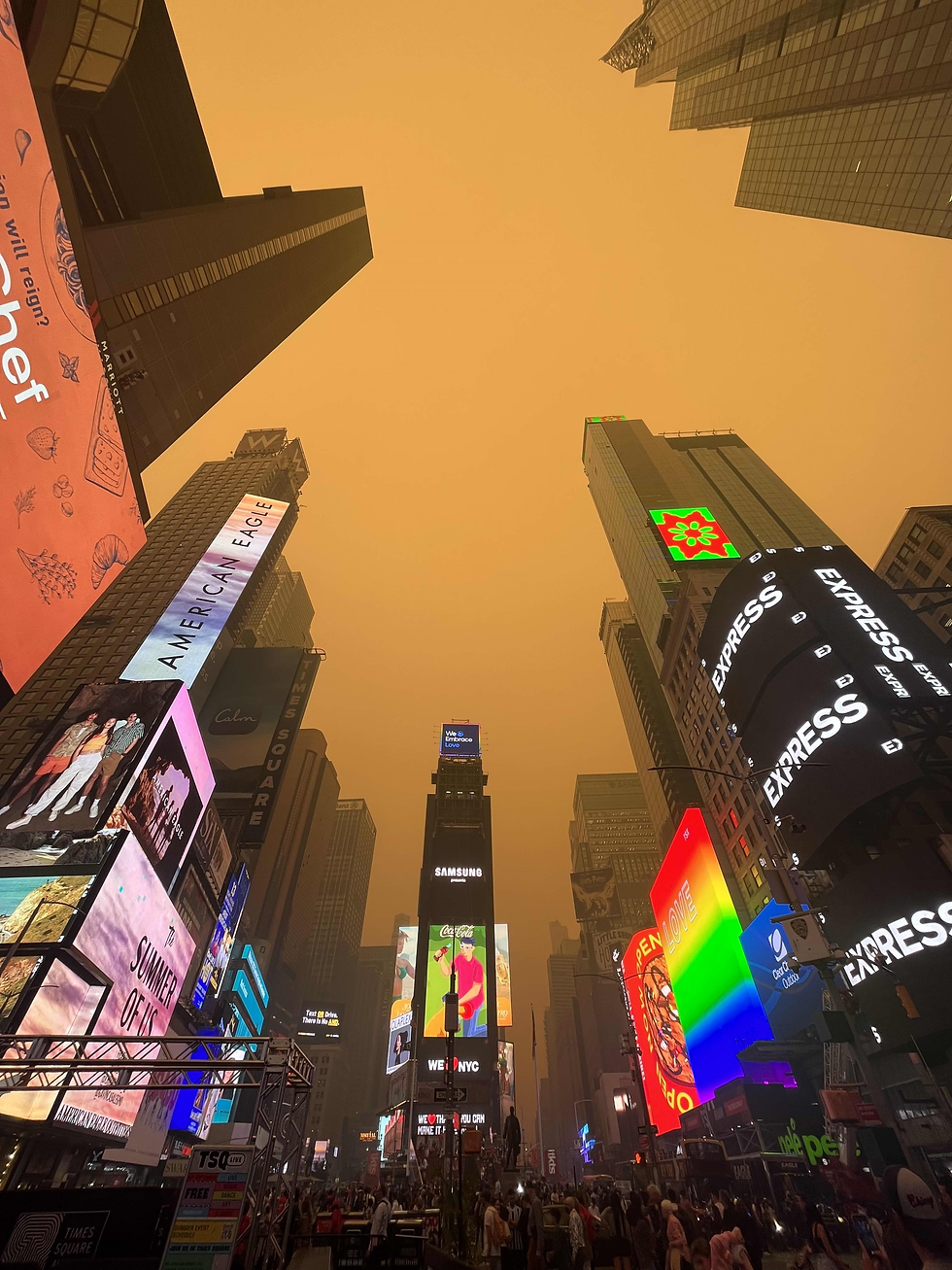A Summer of Forest Fires
- Life USA
- Jun 16, 2023
- 2 min read
Everyone is always grateful for those first initial days of the warm spring weather after surviving yet another freezing winter. But as the years go by, our springs have been getting shorter and shorter. This year many countries are facing a hotter than usual spring. With countless sunny days instead of the rainy spring, our weather is quickly creating the perfect ingredients for wildfires.
What exactly causes wildfires? The three key elements in creating a fire are heat, oxygen, and fuel. With our current warmer temperatures creating the heat element, the warm weather is also drying out our vegetation and soil which provides the perfect kindling to create the required fuel. Without rain, a fire can start easily with a lightning strike, a discarded cigarette, or even an unattended campfire.
Although not all wildfires are bad. Some are intentionally controlled to help promote growth in our ecosystems by clearing out dead vegetation that prevents animals and plants from accessing the soil. However, the majority of the wildfires we’ve faced over the years are mainly accidental that causes a significant amount of widespread damage.
Earlier this month, several wildfires have struck Canada in Ontario and Quebec causing over 14,000 evacuations in the affected regions. According to the Canadian Interagency Forest Fire Centre, it’s reported that there are currently 417 fires actively burning with most of them still out of control. Due to these fires, a blanket of thick smoke has started to cover cities in the northeast of the US. Cities like Manhattan and Washington D.C. are currently facing the worst air quality in the world. Not only are the northeastern states affected by the smoke, but states as far south as South Carolina has been seeing their air quality become more polluted. With red skies slowly spreading across the US, we seem to be facing one of the worst years of wildfires to date.
If you live in an area that is polluted with smoke, your health could be at risk. Smoke exposure can cause a multitude of short term and long term symptoms such as cough, stinging eyes, irritated sinuses, wheezing/shortness of breath, raised pulse, and even chest pain. According to the CDC, the people who are at high risk are those with asthma, heart disease, Chronic Obstructive Pulmonary Disease, pregnant women, and children.
Here are some precautions that you can take to stay safe if you reside in any of these areas: • If you’re high risk, stay indoors as much as possible.
• Wear an N95 respirator mask if you have to venture outside. This will help reduce your exposure to the smoke.
• Purchase an air purifier for your house.
Wildfires are alarmingly tough to deal with for anyone, but if you keep alert, take precautions, and listen to your local authorities, you will be taking the important steps to keeping yourself and your loved ones safe.














